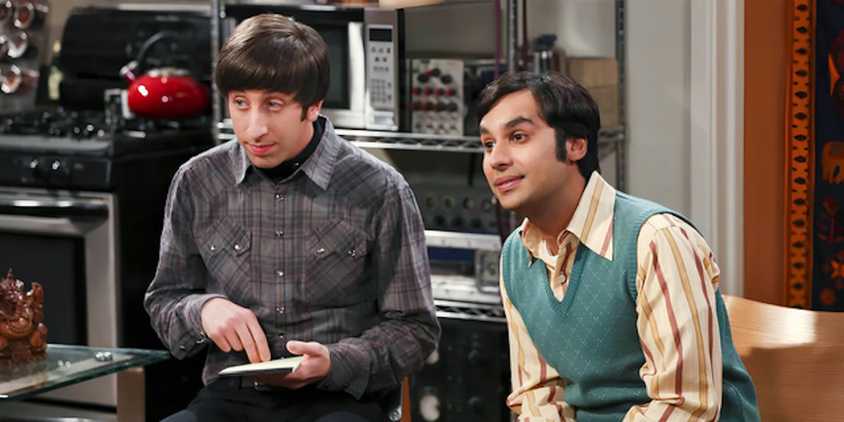Young Sheldon’s ending delivered plenty of heart and humor, but one choice continues to ring false for fans who followed Sheldon Cooper’s long arc across both shows. The flash-forward cameo that brings back adult Sheldon and Amy was designed as a crowd-pleaser, yet it inadvertently clashes with the growth Sheldon achieved by the end of The Big Bang Theory. The result is a dissonant portrayal: a brilliant man who once learned to put others first suddenly acts like a checked-out dad who has to be dragged to his own kid’s big game.
The Penny Problem That Revealed a Bigger Sheldon Shift
The Big Bang Theory’s finale had standout moments—especially Sheldon’s Nobel Prize acceptance speech—yet it also underscored how heavily the show’s final years revolved around him. One emblematic beat was the last-minute reveal of Penny’s pregnancy. As Vulture’s Kathryn VanArendonk noted at the time, Penny’s earlier choice not to have children was a rare, refreshing break from sitcom convention. Reversing that decision in the closing minutes, without any meaningful explanation, felt like the series prioritizing a tidy ending over a coherent character journey. It also highlighted how thoroughly Sheldon had become the franchise’s gravitational center, a point later reinforced by the launch of Young Sheldon.
Season 7 Centered the Coopers—Then Re-centered Sheldon at the End
Georgie’s Ascendancy and the Family Ensemble
In a twist of irony, Young Sheldon—despite the title—often made other Coopers the emotional core, especially in season 7. Georgie emerged as a bona fide fan favorite, leading to the spinoff Georgie & Mandy’s First Marriage. Meemaw, Missy, and Mary also remained integral, proving the show’s audience was deeply invested in the broader family and not just in the wunderkind at the center.
From Grief to Flash-Forward
The season’s final stretch, however, brought Sheldon back to the forefront. Episode 13, “Funeral,” carefully navigated the seismic loss of George Sr., allowing young Sheldon’s interior world to absorb the shock. Then “Memoir” jumped forward in time, revealing the narrator we’ve known all along: adult Sheldon finishing the first draft of his memoir. Enter Amy Farrah Fowler, who scolds him for nearly missing their son’s hockey game. It’s an old-school sitcom setup—the self-absorbed dad, the exasperated spouse—but within this continuity, it feels out of tune.
Sheldon reluctantly agrees to show up, yet the beat lands strangely. The Big Bang Theory and even parts of Young Sheldon had already moved his character beyond this brand of casual indifference. The joke might have landed in a laugh-track environment built for broader gags, but in context, it undercuts what we learned about him by the end of the original series.
What The Big Bang Theory Taught Sheldon—And Us
A Nobel Speech That Reframed His Priorities
Sheldon Cooper’s defining late-series arc in The Big Bang Theory was simple but profound: he learned to value people over prizes. His Nobel speech, with its blunt gratitude and recognition of Amy, his friends, and his family, was both a capstone and a promise. He didn’t just acknowledge their impact; he admitted he could not have accomplished his dreams without them. That’s why his blasé attitude toward his child’s “big game” in the Young Sheldon flash-forward feels so off. It’s not a minor contradiction—it reads like a reversion.

Worse, the irony is baked into the setup. Adult Sheldon is absorbed in writing his memoir, parsing the minutiae of his own formative years, yet he dismisses a formative moment in his son’s life as unimportant. On paper, that’s a clever comedic mirror. In practice, it muddies the resolution The Big Bang Theory worked hard to earn. If his growth could evaporate so quickly, what did that earlier closure truly mean?
Even Sheldon’s Ego Should Make Him Care About His Kids
Self-Interest That Points Toward Involvement
There’s another, more Sheldon-esque reason the Young Sheldon gag doesn’t track. In The Big Bang Theory season 10’s “The Brain Bowl Incubation,” Sheldon becomes intensely focused on procreation after concluding that he and Amy possess exceptional genetic potential. By his logic, their children could be extraordinary. That belief—complete with its egotistical undertones—should make him obsessed with his kids’ development. Even a self-centered Sheldon would want to nurture any spark of greatness, whether it appears at a science fair or on a hockey rink.
That’s why the dismissal in the Young Sheldon finale isn’t just out of sync with his compassionate growth; it’s also inconsistent with his own self-interest. If anything, supporting his children would be aligned with both the improved Sheldon and the older, more narcissistic one. Ignoring them satisfies neither version.
The Creative Catch-22 of Bringing Sheldon Back
Nostalgia vs. Narrative Continuity
Once the Young Sheldon team decided to bring back adult Sheldon and Amy, they faced an unenviable choice. Play Sheldon as genuinely evolved—kinder, more present, more generous—and risk losing the prickly persona fans recognize. Or lean into the familiar quirks for a quick laugh and inadvertently suggest that his Big Bang transformation didn’t stick. Other reunion moments in TV sometimes sidestep this problem entirely. When Big Bang alumni pop up elsewhere, like on Night Court, they inhabit new roles, freeing them from continuity constraints. Young Sheldon, tied to canon, didn’t have that luxury.
The finale went with a nostalgic sheen, dialing up the old rhythms to keep the cameo playful. But in doing so, it made Sheldon feel like a backslide instead of a man who had learned, stumbled, and kept learning.
How Young Sheldon’s Ending Blunts The Big Bang Theory’s Payoff
A Devolution That Dulls the Optimism
Sheldon’s journey in The Big Bang Theory culminated in earned humility—imperfect, yes, but hard-won. By contrast, Young Sheldon’s flash-forward tilts him toward a thoughtless husband and father for the sake of a recognizable joke. It’s an understandable instinct in a finale looking to delight, yet it takes the shine off the original ending. If the most important lesson of his adult life can be suspended whenever a punchline beckons, the earlier triumphs feel less durable.
Some fans may hold out hope that a future spinoff will bridge the gap, perhaps clarifying that this lapse was temporary or contextual. That’s possible. But absent that context, the choice reads as a step backward—one that makes Young Sheldon’s otherwise sensitive farewell feel less optimistic than it might have been.
Why This Matters
Continuity isn’t just a technicality; it’s the emotional contract between a long-running series and its audience. Viewers invest years in a character’s failures and breakthroughs because those arcs promise meaning. When a finale as beloved as The Big Bang Theory’s tells us Sheldon has learned to put people first, that growth becomes part of why fans tune in again. Young Sheldon’s last-minute gag may be funny in isolation, but it loosens the anchor that made the franchise more than a collection of jokes.
There’s still room to reconcile these two portraits of Sheldon Cooper. A sequel could show a man who occasionally backslides but ultimately shows up—who can be both persnickety and present. That version honors the prickly genius we met in Pasadena and the striving father glimpsed in Texas. For a character whose life’s work revolves around searching for elegant solutions, that balance would be the most satisfying proof that his development wasn’t a punchline—it was the point.
